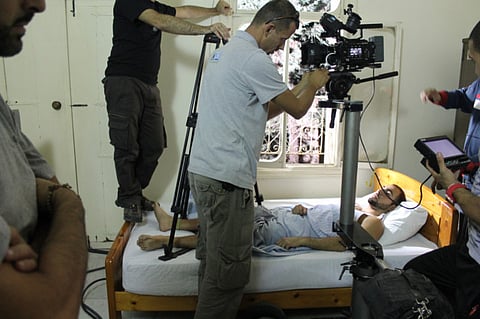Film director tackles Middle East HIV ‘taboo’
Approximately 300,000 people are living with the disease in the MENA region

Dubai: The Middle East which has long had one of the lowest HIV prevalence rates is witnessing a steady increase in infection rates. While governments blame the problem on foreigners such as migrants, tourists and prostitutes, the real problem lies with government negligence and the lack of education programmes to spread awareness about the disease, according to activists.
As the world marks on December 1 World Aids Day, one Lebanese film director has tackled the social taboo in a new film being released on the same day. In an interview with Gulf News, Elie Ballan says believes his film is important in getting people talking about HIV, a taboo subject for many Arab countries. “We wanted to tackle society as a whole to help fight discrimination. Once the topic was in my head, I could not take my mind off of it,” he said. Entitled, Change the film is a metaphorical representation of the MENA mindset against HIV/AIDs.
It begins with lead actor Nabil Ghosn waking up in an empty room. The space reflects his spirit, seasoned by hardship. As Nabil exits the cold room, he passes through a ‘stigma point’ and is captured and confined to a cell along with other HIV positive patients. Nabil refuses to accept the mindset of society and fights to escape.
While some governments in the Middle East are quietly helping those with HIV, many governments have neglected the topic altogether. “If governments consider HIV a taboo then how can we expect people to think any differently?”, Ballan said. “There should be an awareness campaign to educate the public –even in schools—rather than planting fear of it,” he said.
According to the UNAIDS 2012 Global Report, the region is one of just two areas where HIV infection rates continue to grow — and where antiretroviral treatment is the least accessible due to traditional societal stigma and intransigent authorities. The Middle East and North Africa maintain just one per cent of the world’s HIV caseload, with approximately 300,000 adults and children living with the virus, according to the UN. The film is a joint-initiative by the Regional/Arab Nework Against AIDS (RANAA) and MENA Rosa, a group of women living with and affected by HIV in the Middle East and North Africa. To view the film log on to the group’s facebook page called ChangeDec1.



